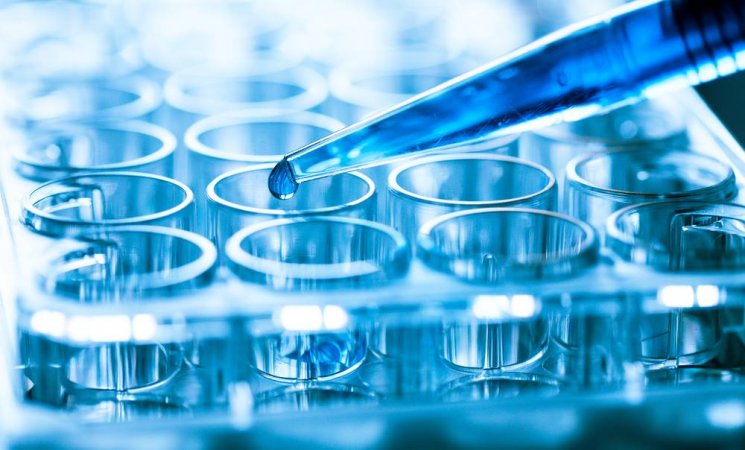
URINE TEST
Kidney diseases often do not give any clinical findings. When they give clinical signs, it is often too late. “Whole urine” test, which is used in the first place in the diagnosis of kidney diseases, is a simple, effortless, inexpensive and repeatable examination. With a urine test, it can be understood whether there is infection, bleeding, diabetes, nephritis, some metabolic diseases, liver diseases. The most confusing and worrying finding in urinalysis is the presence of protein in the urine. In everyday speech, this is called “protein leakage”, and physicians call this condition “proteinuria”. Let’s talk about protein leakage, which is considered the most mysterious and frightening finding of a urine examination.
SOURCE OF PROTEIN IN THE URINE
Protein is a substance found in blood vessels under normal conditions and should not be urinated. Protein in the urine has no source other than kidney tissue. That is, protein does not get into the urine from the urethra, bladder or prostate. Therefore, the presence of protein in the urine usually indicates a kidney disease, with a few exceptions. When protein leakage is detected in the complete urinalysis, it is usually necessary to consult a nephrologist. The nephrologist wants to collect the daily urine and to look at the “protein in the 24-hour urine”. Kidney leakage of less than 150 mg of protein per day is considered physiological/normal. Leaks above this are called “proteinuria”. It can also be suspected with the naked eye by excessive foam on the surface of the urine. Transient proteinuria is seen especially in young and active people. Again, protein leakage can be seen in the urine during febrile illnesses, after excessive exercise, and when exposed to extreme heat or cold. All other protein leaks should be taken seriously.
CAUSES OF PROTEIN LEAKAGE
The unit where the kidneys filter wastes and fluid is called the “glomeruli” and there are approximately one million in both kidneys. They can be considered a kind of pasta strainer. While small-sized wastes (such as urea, creatinine) and water are filtered through this strainer; the proteins (our pasta) stay on the strainer. If your pasta strainer has cracks, tears or holes; your pasta (proteins) drift away with the water. Here, the main cause of protein leaks in the urine is the holes in the glomeruli (the pasta strainer). There are dozens of diseases that cause such damage to the glomeruli: glomerulonephritis, diabetes, hypertension, amyloidosis (seen in familial Mediterranean fever patients), leukemias, lymphomas, other cancer types, rheumatological diseases, infectious diseases such as malaria-tuberculosis, heart diseases, familial kidney diseases, pregnancy poisoning ( preeclampsia). Acute nephritis or nephrotic syndrome, which is seen mostly following infectious diseases in childhood, is common. In adults, kidney involvement is seen due to chronic nephritis and other organ diseases.
PROTEIN LEAKAGE AND RENAL BIOPSY
When protein leakage is detected, a nephrologist should be consulted and his opinion should be sought. In most of the diseases with protein leakage, kidney biopsy is required to make the diagnosis. Today, kidney biopsy has become a simple procedure performed by interventional radiologists under ultrasound guidance. The kidney tissue samples taken are evaluated by a pathology specialist, and the pathology report guides the treatment.
CLINICAL SYMPTOMS
Protein leakage gains importance according to the daily loss amount. If a large amount of protein escapes in the urine; serum albumin level decreases. The albumin in the serum keeps the liquid part of the blood in the vein. If albumin falls, the serum portion of the blood cannot be retained in the vessel and leaks into the tissue space. In daily practice, this condition is most commonly encountered as swelling of the legs, feet, hands and upper eyelids. This swelling is called “edema” and can occur in the lungs, pericardium, and abdominal cavity. Apart from laboratory tests, the most important symptom showing that a person may have protein leakage is edema. It is very important for those suffering from this type of swelling to have a simple complete urinalysis done.
WHY IS PROTEIN LEAKAGE SO IMPORTANT?
Normally, the protein should be in the blood vessels and should not come into contact with the kidney tissue. If the kidney tissue is constantly and intensely exposed to protein, the permanent damage to the kidney tissue over time can lead to chronic kidney failure and the person to be a dialysis patient in the future. Therefore, all protein leaks should be taken seriously. Regular urinalysis is an inexpensive and reliable method of control.

